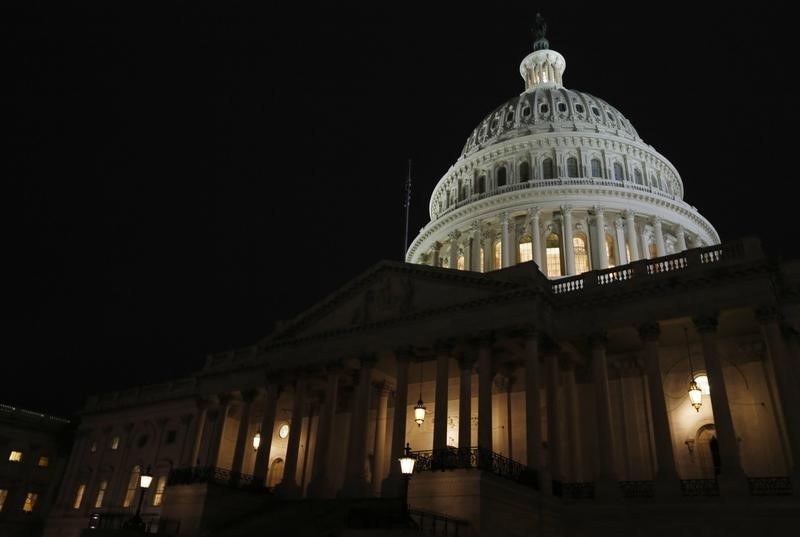By Idrees Ali and Andrea Shalal
WASHINGTON (Reuters) - The U.S. Defense Department would protect spending on operations and readiness if Congress fails to pass a budget for fiscal 2016, so procurement programs would sustain most of the impact, the Pentagon's chief arms buyer said Tuesday.
Defense Undersecretary Frank Kendall said a long-term continuing resolution would maintain spending at last year's levels. This could cause the department to break multiyear agreements with companies, he said, which would result in expensive penalties.
Kendall spoke with reporters after an event in Arlington, Virginia, at Defense One, a publication that covers the military.
Speaking with reporters after the event, Kendall added that he expected the bill to be passed without the Oversees Contingency Operations (OCO) in it.
"If the bill is vetoed, my expectation is that part of the bill would be stripped out and the remainder of the bill would be passed," he said, referring to the OCO being taken out.
President Barack Obama has said he would veto the $612 billion defense authorization bill, because of the "irresponsible way" it boosts military spending.
During the event, the acquisition chiefs for the different armed services spoke of their concerns about a continuing resolution and the impact it would have on their programs.
The top Army arms buyer, Heidi Shyu, said about 400 programs would be impacted by a year-long continuing resolution. She added that the Armored Multi-Purpose Vehicle (AMPV), being built the BAE Systems (LONDON:BAES), could not be ramped up in that case.
Sean Stackley, the Navy's arms buyer, said a yearlong continuing resolution or sequestration would have an $11 billion impact on the Navy.
Stackley said new starts would have to be slowed down including the Gerald R. Ford-class aircraft carrier, the USS George Washington, refueling and complex overhaul (RCOH) and the Navy TAO(X) oiler shipbuilding program.
